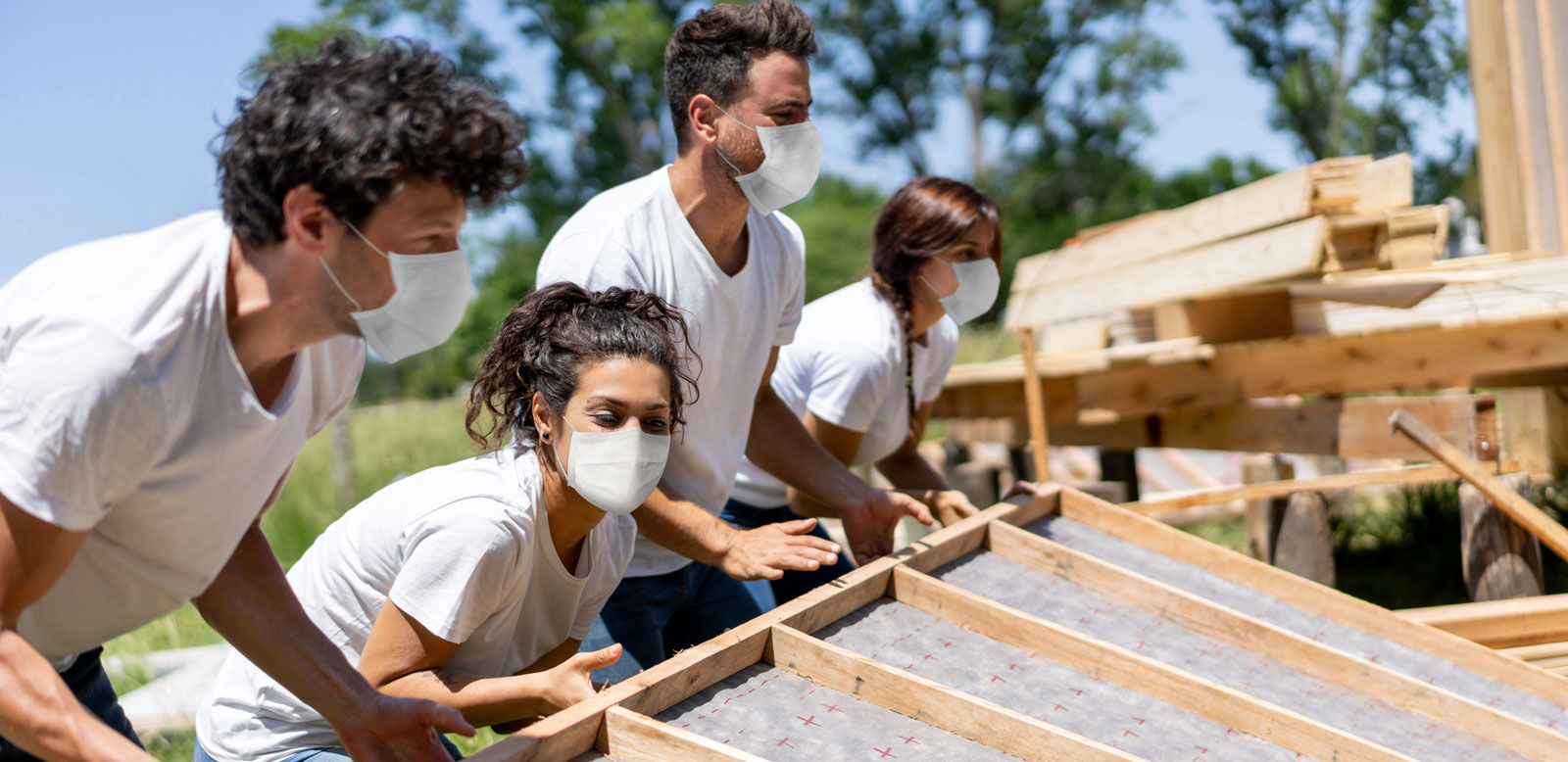
How to be helpful after a hurricane
August 31, 2021 — Disaster insights
We’ve all seen the images on the news – violent wind, rising floodwaters, damaged homes. A hurricane has made landfall. Communities are devastated. From your couch, in the comfort of a safe, untouched home – maybe even in some other part of the country – you feel helpless. The loss is incomprehensible.
In situations like this, the desire to do something is strong. But what? And how can you know you’re doing the most good, providing the right help and not unknowingly making situations worse? When basic needs are being unmet, and infrastructure are broken down, it takes a thoughtful, organized approach to rebuild. Returning to normal requires an army of resources – time, money and energy.
If you have a desire to help, here are ways to provide thoughtful assistance in the aftermath of a storm.
Stay put
Whether you’re in the neighboring community or states away, stay right where you are. As curious or as helpful as you think you can be, driving into a storm-ravaged area only worsens the situation, jamming roads and causing congestion on streets that are already covered by debris.
“If you don’t live or have family in the community affected, don’t go there on your own in an attempt to offer direct support, instead coordinate with a volunteer organization that can guide you on how best to help,” said Daniel Smith, senior innovation manager for SageSure. Daniel has 10 years of natural hazard research experience, including field deployment for hurricane events in the US, Caribbean and Australia. “It’s important to limit road congestion and allow resources to flow into and out of the area. Unless you have a reason to go there, don’t.”
Partner with the pros
Unfortunately, hurricanes and other catastrophic events are becoming more common, which also means there are many relief organizations with the skills and experience necessary to help. FEMA, the American Red Cross, Habitat for Humanity, Mennonite Relief Services, Samaritan’s Purse, Team Rubicon – these are just some groups that systematically deploy resources and aid communities after a storm.
“Some answer the immediate short-term needs, and others provide expertise and innovative solutions that help families rebuild their homes stronger than before the storm,” Daniel said.
Select an organization you can get behind and make a financial contribution. When paired with an experienced service organization, your gift, no matter how large or small, will have a direct and immediate impact.
Take caution; catastrophes of national scale are often perfect breeding grounds for dishonest people looking to take advantage of the situation. Be sure to properly vet any organization you contribute to but take extra caution after a hurricane.
Shop local, from afar
Beyond the physical rebuilding process after a hurricane, the economics are also disrupted and need to be restored. Immediately following a storm, many businesses are without the power and means to operate with the systems they are accustomed to. However, when infrastructures are back in place, businesses will rely on customers to revitalize their enterprise. With internet stores, you can support local businesses no matter where you are. Consider ordering cookies for your next event from the artisan bakery in the community where the last storm hit. Need a new dress for an event? Check out the online stores for the local boutiques. It might take extra work to find the right fit, but you can make a difference with how and where you spend your money.
Sometimes the best way to be helpful after a natural disaster is to stay clear and let the trained, experienced authorities handle the situation on location. If you can, make a financial contribution. It’s one of the simplest ways to support qualified relief organizations. Then, after the dust settles a little, remember the communities involved. They will feel the effects of the storm long after the power is back on. Support their small businesses and source goods or services from shops in the areas where the storm hit.
Steer clear, donate and splurge on something local – the little things really do matter.
